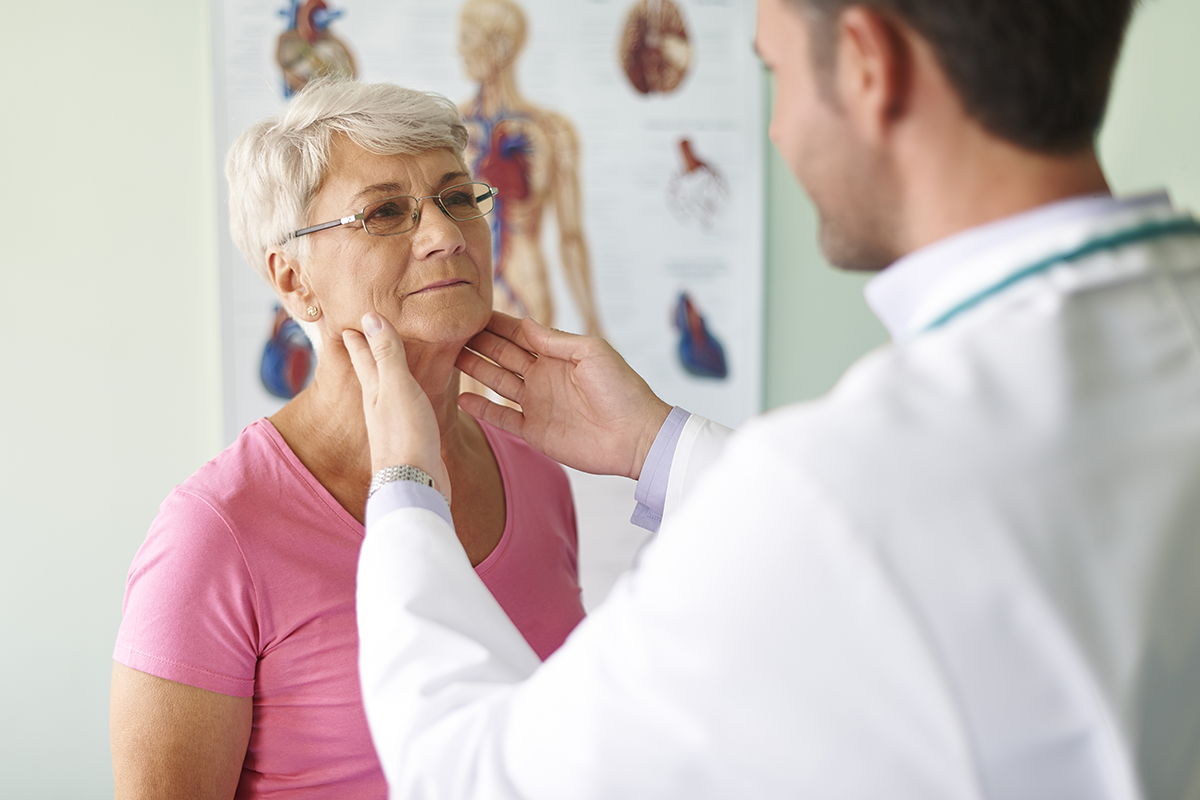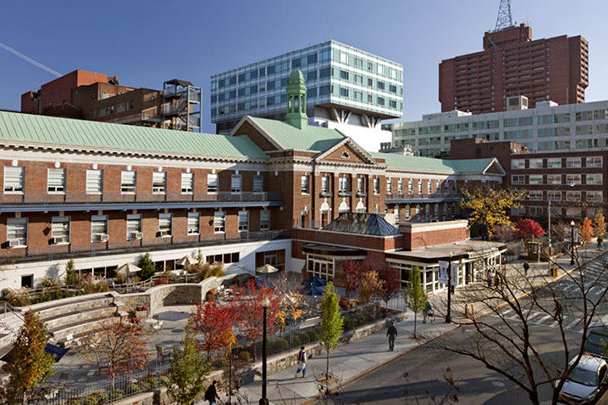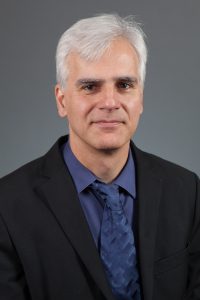
News in Brief, August 2021
August 17, 2021
Trial Spotlight: Dan Zandberg on the EA3191 Study for Head and Neck Squamous Cell Carcinoma
August 17, 2021Institution Spotlight: Montefiore Health System and Albert Einstein Cancer Center


By Balazs Halmos, MD
Voting Member, ECOG-ACRIN Principal Investigator Committee
and
Associate Director of Clinical Research, Montefiore Health System and Albert Einstein Cancer Center
Montefiore Health System and Albert Einstein Cancer Center, based in the Bronx, New York, is one of only 14 of 46 NCORP (NCI Community Oncology Research Program) clinical sites to be designated as a Minority/Underserved clinical site. This designation means at least 30% of participants enrolled in trials must be racial/ethnic minorities or rural residents. We take great pride that at our institution, 80% of clinical trial participants are minorities—compared to a nationwide figure of only 8%. Part of our success in recruiting diverse populations is our rich history of delivering comprehensive care to an ethnically diverse and socioeconomically challenged urban community comprised of 1.47 million residents, of whom 89% are minorities and 29% live below the federal poverty level.
A member of the ECOG-ACRIN Cancer Research Group (ECOG-ACRIN) since 1972, Montefiore and Einstein was one of the first cancer centers to earn a National Institutes of Health (NIH) designation. The cancer center is one of eight Montefiore and Einstein specialties recognized by the NIH for scientific and research leadership.
Today, under Edward Chu, MD, MMS, who was named director of Albert Einstein Cancer Center and vice president for cancer medicine at Montefiore last year, we are continuing research into community attitudes about clinical trial recruitment and increasing community engagement activities, with an enhanced focus on underrepresented populations.
Studying cancer in our diverse communities is vital to improving access to novel therapies, enhancing screening, and identifying best practices. Our center has championed achievements like the landmark TAILORx study, which found that most women with early breast cancer do not benefit from chemotherapy. We’ve also participated in subsequent analyses that looked into whether this assay test is equally accurate for Black women with early-stage hormone estrogen receptor positive breast cancer.
More recently, we published some of the largest data on the impact of COVID-19 on people with cancer and the immune response following vaccinations. Simultaneously, we are offering a diverse portfolio of trials, running the gamut from community-based research efforts in smoking cessation, cancer screening, and prevention, to innovative phase I and cell therapy-based offerings.
At Montefiore and Einstein, I am the director of the Thoracic/Head and Neck Oncology program. I lead several ECOG-ACRIN clinical trials in the lung cancer space. For example, I serve as the study chair of EA5182, Randomized Phase III Study of Combination AZD9291 (Osimertinib) and Bevacizumab Versus AZD9291 (Osimertinib) Alone as First-Line Treatment for Patients with Metastatic EGFR-Mutant Non-Small Cell Lung Cancer (NSCLC). I also oversee our precision oncology and tissue-based efforts and serve as local principal investigator (PI) of The Cancer Moonshot Biobank protocol.
Our NCORP program is co-led by Bruce Rapkin, PhD, director of catchment area research at Albert Einstein Cancer Center, and professor in the departments of Epidemiology and Population Health, Albert Einstein College of Medicine and Montefiore, and professor of Epidemiology and Population Health and of Family and Social Medicine, Albert Einstein College of Medicine. Dr. Rapkin’s extensive research focus on health care delivery research and health equity include his role as lead investigator of the SU2C Health Equity Breakthrough Team. He is the community co-chair for the ECOG-ACRIN Cancer Care Delivery Research Committee.
Our other NCORP co-PI is Benjamin Gartrell, MD, director of GU Oncology and assistant professor of medicine and of urology at Einstein, who is particularly excited about opening the pivotal EA8183 study, A Phase III Double Blinded Study of Early Intervention after Radical Prostatectomy with Androgen Deprivation Therapy with or without Darolutamide vs. Placebo in Men at Highest Risk of Prostate Cancer Metastasis by Genomic Stratification (ERADICATE), developed in part by Montefiore investigators.
Other key investigators in our program I would like to highlight include breast medical oncologist, Della Makower, MD, associate professor of medicine, Einstein, who is leading the EA1151/TMIST Study: Tomosynthesis Mammographic Imaging Screening Trial (TMIST), to which we were the first in the country to recruit patients, and medical oncologist Joseph Sparano, MD, our previous ECOG-ACRIN principal investigator, who is the study chair for the TAILORx. This past June, I became our institution’s voting representative on the ECOG-ACRIN Principal Investigator Committee, succeeding Dr. Sparano.
I would be remiss to not highlight a few other investigators as well, including Nitin Ohri, MD, MS, director, Data Safety and Monitoring Committee and Radiation Oncology Clinical Research and associate professor of radiation oncology at Einstein. Dr. Ohri is a very active NRG Oncology investigator and helped us to be one of the top 10 overall sites for recruitment for the pivotal NRG-LU002 study: Maintenance Systemic Therapy Versus Consolidative Stereotactic Body Radiation Therapy (SBRT) Plus Maintenance Systemic Therapy for Limited Metastatic Non-Small Cell Lung Cancer (NSCLC): A Randomized Phase II/III Trial. Also in radiation oncology, is Rafi Kabarriti, MD, PhD, an associate professor of radiation oncology at Einstein, who champions the important NRG-HN001 study: Randomized Phase II and Phase III Studies of Individualized Treatment for Nasopharyngeal Carcinoma Based on Biomarker Epstein Barr Virus (EBV) Deoxyribonucleic Acid (DNA).
Last but not least, Haiying Cheng, MD, PhD, associate professor of Medicine at Einstein, who deserves recognition for running a clinical study for people with HIV infection: ETCTN 10387 Pilot Trial of Nivolumab Plus Cabozantinib for Advanced Solid Tumors in Patients With HIV Infection.
ECOG-ACRIN’s Cancer Care Delivery Research protocols have allowed us to introduce and evaluate needed telehealth care at our cancer center. Telehealth strategies are welcomed by many of our patients, especially given concerns about exposure to COVID. For example, the “Smoke Free Support Study 2.0” (EAQ171CD) led by Dr. Rapkin is examining the effectiveness of a tobacco cessation intervention that combines nicotine replacement therapy with 12 sessions of online counselling. Physicians in every adult oncology specialty are referring patients to this ongoing trial.
Another study entitled Mi Guía/My Guide, with Dr. Makower as our local PI, in addition to being an essential member of the overall study team, is testing a novel, smartphone-based health program. This app assists Latina/Hispanic women with adherence to endocrine treatment. Patients have been very receptive to this study, and accrual is already well underway after only 5 weeks.
It is only because of the passion and dedication of these investigators that we are starting to scratch the surface of addressing longstanding health disparities and ensuring the most vulnerable members of our community receive the care they deserve.
We are most thankful for these efforts and look forward to reporting on the results of this research.
![ECOG-ACRIN logo[19516]275×75](https://blog-ecog-acrin.org/wp-content/uploads/2021/03/ECOG-ACRIN-logo19516275x75.png)
